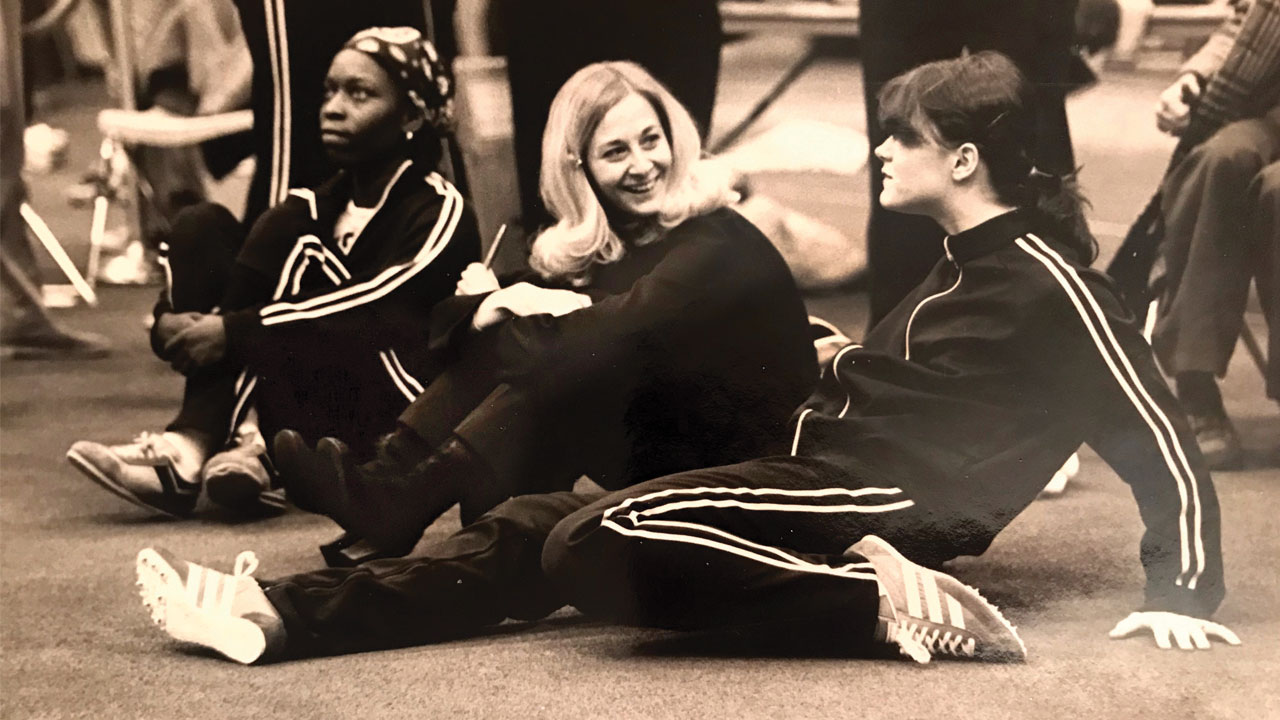
Published on Show Me Mizzou August 25, 2022
Story by Joe Walljasper, BJ ’92
Growing up in the 1960s, Alexis Jarrett loved sports but always found herself on the fringes. She could keep up with the boys in the sandlots and on the playgrounds, but there were no organized sports for girls. She covered sports for her high school paper in Independence, Kansas, and worked as a sportswriter and sportscaster while she was a student at the University of Minnesota Duluth, but she never got the chance to compete.
That’s just the way it was — but not for much longer.
In 1972, the passage of Title IX — the law banning sex-based discrimination in schools that receive federal funding — meant public universities would soon need to sponsor women’s athletics. Two years later, Jarrett sat before a hiring committee at the University of Missouri. Mizzou was launching eight new women’s sports programs for the 1974–75 school year and needed to find someone who could coach three of them — track, basketball and softball — as well as being an assistant athletics director and sports information director. The salary would be $7,500, about the same as she was making as a high school teacher in Minnesota.
The job description was impossible. The pay was laughable. She said yes.
“I had a dream my whole life to be able to play,” Jarrett says. “When I watched all those boys, I wanted to be out there. This was the opportunity to start that dream.”
She arrived at Mizzou in August 1974. She was 26 years old, and her only coaching experience was as a high school assistant coach. She had no players, no equipment, no facilities and no schedules. But she had a knack for making connections with people who could help her navigate this strange new world without spending money, which she did not have.
Jarrett had a tiny office in McKee Gymnasium, where students signed up to become the pioneers of Mizzou women’s athletics. The athletes sold concessions at football games to raise money for uniforms while Jarrett scrambled to find places where they could practice and play. Just getting to road games was a big challenge, as the size of the travel squad depended on whether she could wrangle one or two vans when she took her voucher to Jesse Hall.
Jarrett fondly recalls the can-do spirit of her athletes and the kindness of many of the key figures in Mizzou men’s athletics, including Norm Stewart. He took one look at the warped hardwood at McKee and arranged for Jarrett’s basketball team to practice and play at the Hearnes Center. She still vividly remembers the speech she gave before the first basketball game. “We had one light that was shining like a beacon to the middle of the floor,” she says.
“We were sitting in a circle, and I told them: ‘I want you to understand that you are making history. Someday you’ll be able to tell your children and grandchildren what you started.’ ”
The women’s basketball and softball teams both finished with winning records that season. Jarrett wound up coaching basketball for one year, softball for two and track for three. In 1977, she wanted to be closer to her ailing mother, so she left Missouri for Indiana, where she ultimately became an insurance agent.
Jarrett stayed in touch with her former players and colleagues but didn’t return to Columbia until April 2022, when she was invited back for a Mizzou softball reunion. It was now 50 years after Title IX, and she was delighted to see women competing in a gleaming stadium in front of large crowds. It bore little resemblance to her first year as coach, when the Tigers played softball at the American Legion baseball field, where they would lose fair balls in outfield briar patches. When she addressed the current Tigers, she got emotional.
“I told them: ‘I want to thank you for being girls who dreamed. Never stop dreaming and growing. Someday, you’ll come back here and be as shocked as I am at how much it has progressed.’ ”



